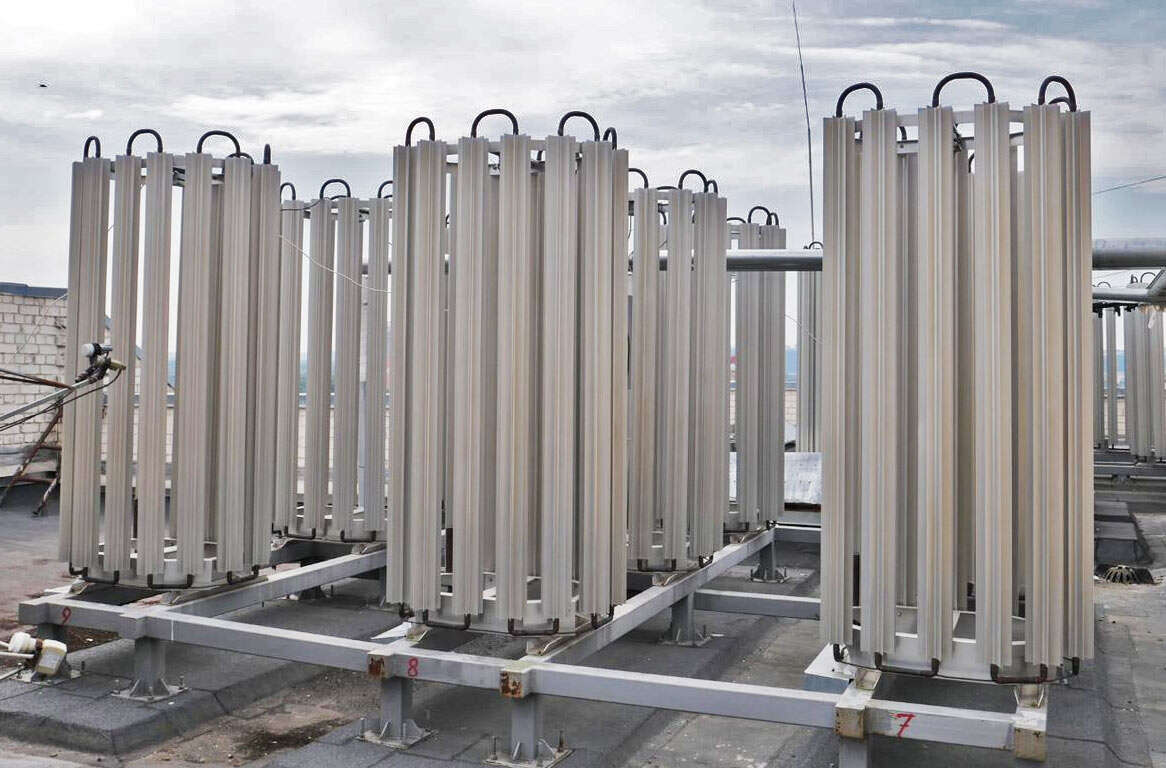Coauthored with US Congressman Lloyd Doggett
The accelerating climate emergency demands that we seek progress wherever and whenever possible. Understanding this, the leaders of 50 Ukrainian cities and territories sent a letter to Energy Secretary Jennifer Granholm (copied to Secretary of State Antony Blinken, US AID Administrator Samantha Power, and US Ambassador to Ukraine Bridget Brink) asking that U.S. aid packages to Ukraine prioritize renewable energy as a way of safeguarding the country’s energy security and resilience. This request is particularly timely as Ukraine prepares for Russian attacks on its energy infrastructure with the onset of winter. We have endorsed their effort and urged the administration to respond promptly and favorably.
This plea from municipalities, still under horrendous assault from Vladimir Putin, is an unusual step for local leaders seeking to inform and influence decisions as our country is extending desperately needed wartime aid. While the U.S. has an unfortunate history of preferring big Washington DC-based contractors in places like Afghanistan rather than supporting local community development approaches, Ukraine offers us an opportunity to learn from past mistakes by supporting these local leaders.
Their message is succinct, emphasizing that these local leaders “strongly believe that Ukraine’s energy security as well as the energy security and resilience of our communities will benefit our country’s energy transition and the scaling-up of the installation of renewable energy sources.”
Their remedy was specific: a simple decentralized energy roadmap, with critical infrastructure — like hospitals, water utilities, wastewater treatment plants, schools, kindergartens, and city and town councils — equipped with solar energy systems, battery storage, and heat pumps. Doing so, they said, would create “a high level of energy autonomy in a very short amount of time and could save precious financial resources…”
Already suffering from extensive war damage to energy infrastructure and expecting even more power outages from upcoming winter attacks, this request is urgent. That’s why these local governments are now pushing to expedite the creation of individual renewable energy installations, which can scale up more quickly — and ideally before winter — than more centralized fossil fuel or nuclear infrastructure that the U.S. government has previously prioritized.
Nor does this green ask come out of the blue. It follows recent renewable energy investments and installations happening across the country, supported by one of Ukraine’s major environmental nonprofits, Екодія or “Ecoaction,” the European Commission, the German government, and others, all focused on decentralizing Ukraine’s energy system to advance more resilient and secure energy.
Decarbonizing Europe can ensure Ukrainian security and protect us all from petro-dictatorships. We must recognize that even though Putin is still tearing down the nation, we must begin rebuilding Ukraine in a renewable way now. We’re calling for a Green Marshall Plan as the future of energy security and climate action in Europe will hinge on Ukraine’s green reconstruction.
Unlike nuclear plants and large fossil fuel facilities, which simply offer Russians bigger targets to bomb, sabotage, or hack, smaller energy systems make for smaller targets, sizably less prone to attack. Accordingly, diffuse, decentralized power generation generates an added layer of resilience in decreasing disruptions. Individual solar projects on critical infrastructure weaken Russian attacks on the energy grid and protect necessary hospitals and schools from devastating blackouts.
Forty solar projects and eight heat pump projects for district heating stand ready to be piloted. The work is ready; the proof of concept is in place. This year, a Ukrainian NGO Ecoclub has already installed five solar power plants that are operational, with more in the pipeline, in places like local hospitals, guaranteeing energy security, reducing utility bills, and continuing medical care in the face of attacks. An outpatient clinic in the Kyiv region now has a new ground-water heat pump and a solar power plant; it is the first medical facility in that area to feature an energy-efficient system. And schools throughout Ukraine are now getting solar stations with energy storage systems as part of a new campaign called 100RESforSchools, initiated by the Energy Act For Ukraine, which aims to create decentralized energy sources for schools, as nearly 2,000 schools have been damaged by the war and many now lack electricity.
The 50-signature letter builds on this momentum throughout the country to create a renewable energy infrastructure that is not only better designed to avoid Russian attacks, but also offers the advantage of more immediate installation. To build on this momentum, these 50 municipalities can co-finance, but they require U.S. support to scale up. With their demonstrated commitment to co-finance and use concrete equipment for their needs, rather than just a check, the U.S. government can design our support in such a way to reduce any concerns of corruption. The effort to sustainably rebuild Ukraine for the future cannot and will not allow for people to take advantage of the emergency energy support. Instead, the effort will benefit the whole.
And the collective wins are here for the taking, from more resilient and secure infrastructure to new skills and capacities built across Ukraine’s workforce in renewable electricity, heat and energy efficiency.
Green reconstruction of Ukraine also supports the urgency of ending Putin’s criminal invasion by replacing energy dependency and vulnerability with resilience and security. Big fossil fuel energy infrastructure puts a big target on a big system, making it more vulnerable to Russian aggression, whereas smaller, decentralized, renewable energy installations are hard to hit and offer quick backup.
Here is a valuable opportunity for the U.S. government to lead together with the European Commission. If we want to help the people of Ukraine and their security, transitioning to a greener economy will set Ukraine on a more stable path with local jobs, local power plants, local supply, and local control. In short, smaller, greener offers Ukraine a bigger, brighter future than repeating the fossil fuel mistakes of the past. And supporting this courageously struggling country in this way advances an example for the world in confronting the climate crisis.
U.S. Rep. Lloyd Doggett serves Texas’ 37th District in the House of Representatives, which includes most of Austin, and is a member of the Ukraine Caucus and the House Sustainable Energy & Environment Coalition. Michael Shank, PhD., is the director of engagement at the Carbon Neutral Cities Alliance and adjunct faculty at New York University’s Center for Global Affairs and George Mason University’s Carter School for Peace and Conflict Resolution.












